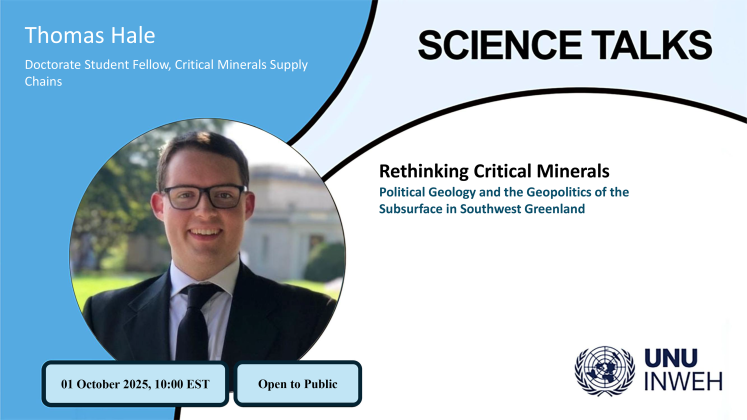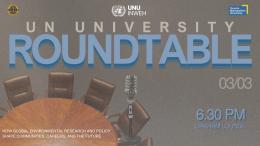Critical minerals have rapidly emerged as one of the most pressing issues of our time, crosscutting debates over water security, Indigenous sovereignty, environmental justice, and global health. Demand for these materials to support energy transition technologies, artificial intelligence infrastructure, and defense systems have continuously put critical minerals at the center of global competition and cooperation, shaping debates over security, sustainability, and the future of international politics. Yet despite this urgency, traditional geopolitical theory and much of the academic curriculum in geoscience and international affairs continue to treat the subsurface as a two-dimensional passive backdrop rather than an active force. This overlooks the political power and potency of subsurface geologies and geochemistries, and the ways they shape, constrain, and interact with geopolitical processes at the surface. Understanding the intersections of mineral deposits and politics allows researchers, community leaders, and policymakers to have a better perspective on how nation-states and prevailing economic models abstract the subsurface to project power, extract wealth, and develop industrial realities that limit our capacity to radically rethink our relationship to land and its uses.
In this Science Talk, Tom Hale will challenge participants to rethink the role and agency of materials in our everyday lives and how physical forms, geochemistries, temporalities, and materialities of mineral deposits beneath our feet actively shape human decision-making and geopolitical conflict at the surface. Critical theories such as political geology, volumetrics or vertical geopolitics, and chronopolitics will be used as essential toolkits to elucidate how power, space, and time all interact with reshaping our relationship to land and how negotiations and geopolitical discourse in our world often fails to incorporate these important realities into their political and economic models. Exploring this critical approach in practice, Tom Hale will highlight his research in Southwest Greenland's Gardar Igneous Province, where geopolitical futures, indigenous sovereignty, and subsurface geologies come to a head. From the rare-earths of the Ilímaussaq deposit to the historic Ivittuut Cryolite mine, these subsurface resources tell a story of conflict and cooperation millions of years in the making, yet one of extreme relevance today for the people of Greenland and their future. Using these critical approaches to critical minerals uncovers power dynamics and how various stakeholders relate to land to better inform the negotiation and consultation process ensuring communities have a voice and that the future of the environment does not get undercut for present material demands. Tom will finish his presentation on how this framework provides new ways of integrating transdisciplinary approaches in geoscience pedagogy, opening up new pathways of teaching, governing, and imagining mineral futures while also reconciling with western geoscience knowledge production models in hopes to bring it in closer dialogue with Indigenous science.
Speaker

Thomas Hale
Doctoral Student Fellow, Critical Minerals Supply Chains





